System Dialog
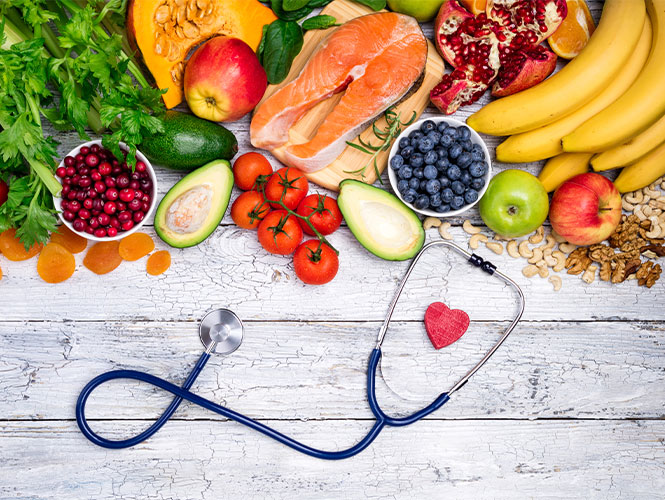
Heart Disease is the leading cause of death in the United States. While some factors, such as genetics and family history, predispose us to a higher risk of heart disease, fortunately, there are factors that we can control that help to prevent the risk of developing high blood pressure and high cholesterol. What we eat, our level of physical activity, sleep and stress are some of the factors that can help mitigate the risk of heart disease.
A heart healthy eating pattern is one that balances a variety of fruits and vegetables, whole grains, lean and plant-based proteins and healthy fats in the appropriate portions for our body, while limiting saturated and trans fats, added sugars and sodium.
Fat is an important nutrient for our bodies with essential functions, including providing a source of energy, helping us to absorb vitamins and providing insulation and warmth for our organs. Not all fats are created equal. There are two basic types of dietary fat: saturated and unsaturated fats. While unsaturated fats have protective benefits for the heart, like lowering triglycerides and raising HDL (good) cholesterol, saturated fats can raise LDL (bad) cholesterol levels, leading to a buildup of plaque in the arteries and increasing risk of stroke.
Keep in mind that while unsaturated fats are good for you, they are required in small amounts.
Include unsaturated fats:
• Avocado
• Olives – be mindful of sodium content
• Oils that are liquid at room temperature, such as olive, avocado, vegetable, sunflower, safflower, and soybean oils
• Nuts including walnuts, almonds, pistachios, macadamia, peanuts, cashews
• Seeds including flaxseed, sunflower and pumpkin seeds
Limit saturated fats:
• Fatty cuts of beef and pork. Look for lean cuts of beef such as sirloin or tenderloin and poultry without the skin. For ground meats, look for 90% or leaner.
• Processed meats like bacon, salami, bologna or sausage
• Butter, palm oil and coconut oils
• Full fat dairy products, like whole milk and full fat yogurt, ice cream and cheese
Avoid trans fats:
Trans fats are those that are chemically reconfigured into saturated fats, to make them solid at room temperature. Trans fats should be avoided.
Foods that are high in trans fats include:
• Packaged baking mixes (pancake, biscuits, waffles)
• Margarines
• Movie theater-style popcorn butter
Sodium is an essential mineral that our bodies require for nerve conduction, muscle contraction, and to control fluid balance in the body. While we need some sodium, too much can lead to high blood pressure. A single teaspoon of salt contains 2300 mg of sodium which is the recommended daily value for healthy adults. However, most of our sodium intake does not come from the salt that we add to foods at the table, but from processed foods we consume. When selecting items, look for items with no more than 140 mg sodium per serving or for items that are tagged as “Low Sodium.” Keep in mind that if you plan to eat more than one serving, you need to multiply the milligrams of sodium by the number of servings you eat.
Foods highest in sodium:
• Luncheon meats and cheeses
• Breads, tortillas and wraps
• Chips and crackers
• Condiments, including ketchup, mayonnaise, mustard, pickles, relish
• Prepared soups
• Frozen meals, pizzas
• Canned vegetables with salt
Nutrients to increase:
While sodium is a mineral that should be limited to prevent heart disease, some minerals have been shown to be beneficial for heart health. Potassium, magnesium and calcium are minerals that many of us do not consume enough of and have heart healthy benefits.
To get more of these nutrients in your diet include more:
Calcium: Yogurt, low-fat milk, cheese, fortified soy beverage or yogurt, Kefir, dark leafy greens, canned sardines, fortified orange juice and tofu prepared with calcium sulfate.
Potassium: Potatoes, bananas, coconut water, carrot juice, prunes, orange, kiwi, raisins, beans & lentils, avocado, dark leafy greens, tomato paste and canned tomatoes.
Magnesium: Leafy green vegetables, pumpkin seeds, chia seeds, black beans, cooked edamame, cashews, and almonds.
Are you sure you wish to cancel this order?
Loading…
Loading…

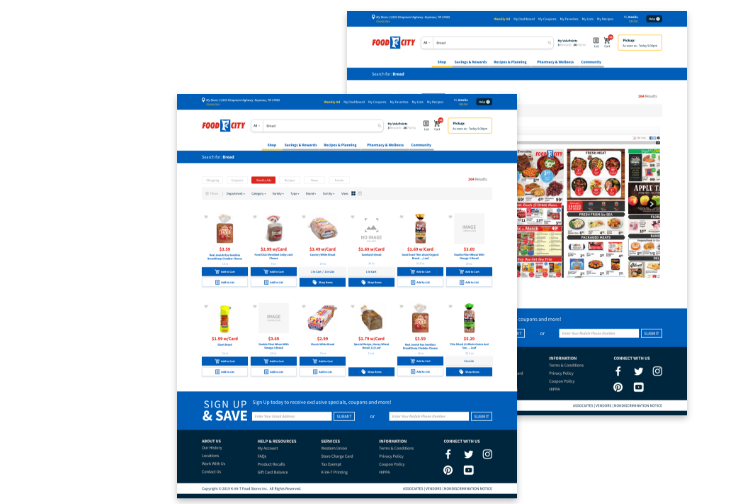
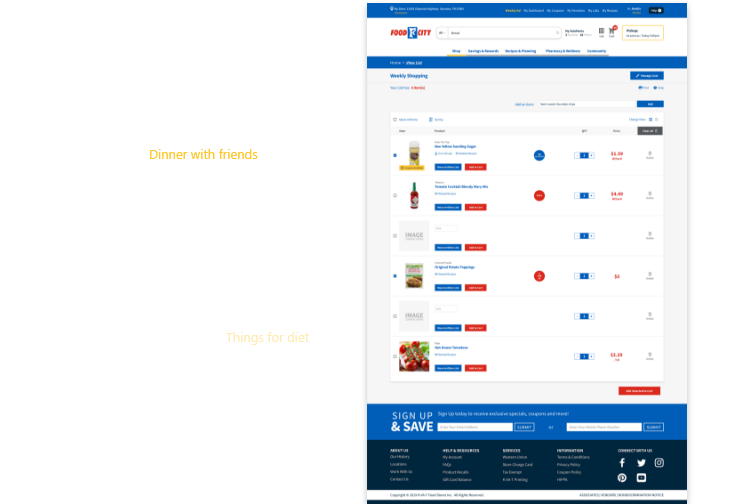
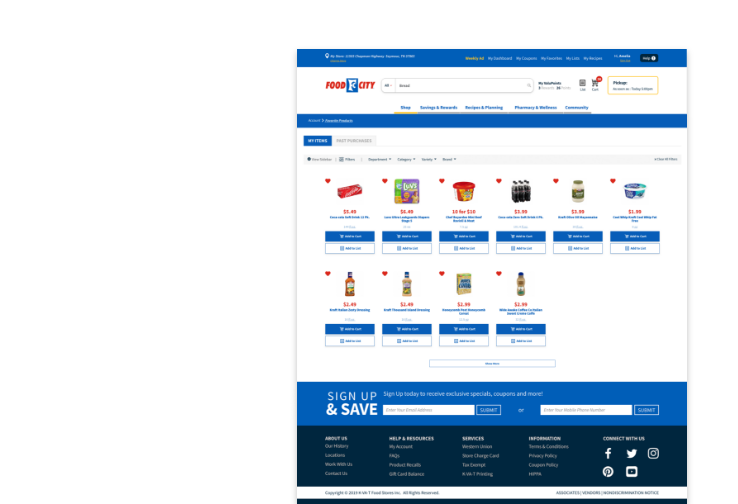



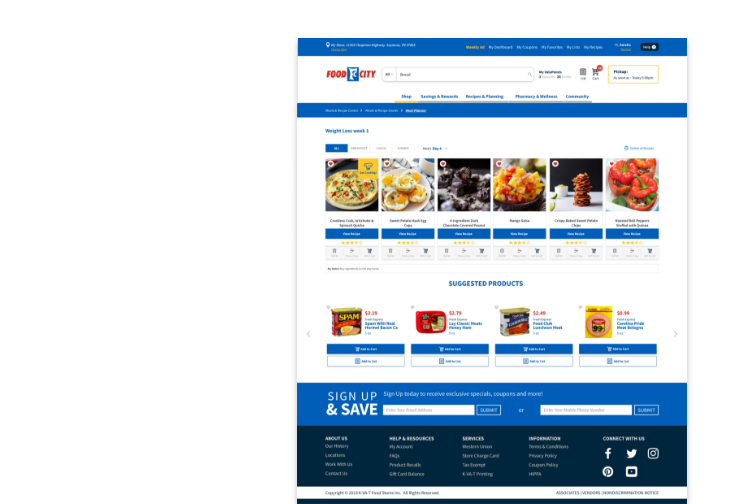
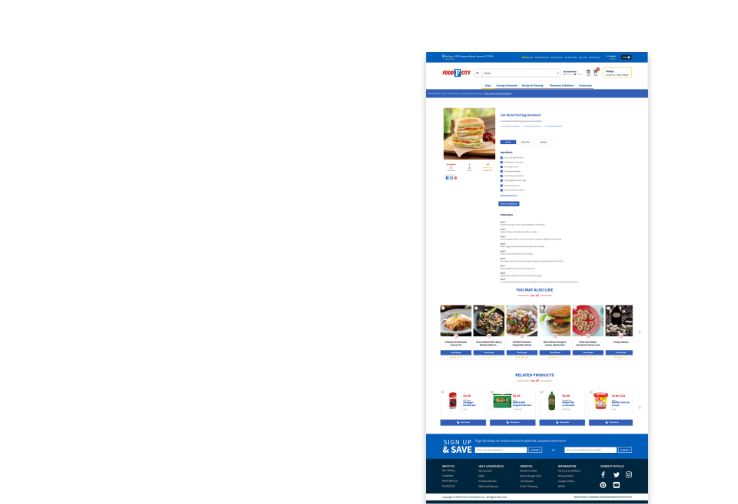
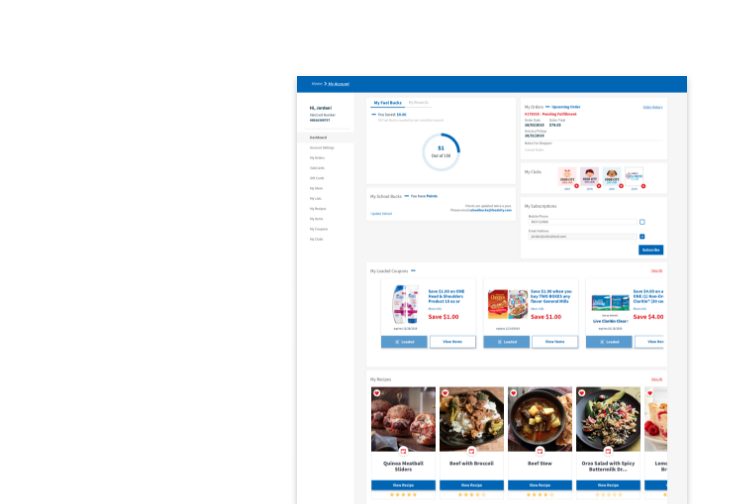
We hope you enjoyed your tour and will love all the new features, benefits,
and savings the new Food City website has in store for you.
If you want a refresher course,
you can find this tutorial again in settings.


We want to make your life easier, so a new feature has been added just for your needs.
Loading…
Loading…
Loading…

Success
Ingredients added to list.
Hello! How can I help you today?